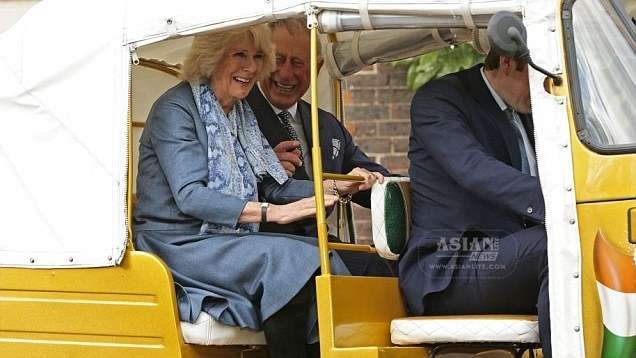The British Supreme Court says letters by Prince Charles to the government can be published, after a campaign launched by The Guardian newspaper. The newspaper sought disclosure of the letters, written to seven government departments between 2004-5.

There is no date set for the release of the letters. But the government may launch another legal obstacle to prevent its release.
The UK’s highest court was asked to judge whether the Attorney General’s office acted unlawfully when it prevented their publication in 2012.
The prince’s office at Clarence House said it was “disappointed the principle of privacy had not been upheld”.
A spokeswoman also said the issue was “a matter for the government”.
It has been argued that releasing the so-called “black spider memos” – a reference to the prince’s handwriting – would undermine his neutral political status.
Prime Minister David Cameron called the ruling “disappointing” and said the government would now consider how best to release the documents.
He added: “This is about the principle that senior members of the royal family are able to express their views to government confidentially. I think most people would agree this is fair enough.”
Mr Cameron also hinted that the legislation could need tightening in the wake of the ruling.
“Our FOI (Freedom of Information) laws specifically include the option of a governmental veto, which we exercised in this case for a reason.
“If the legislation does not make Parliament’s intentions for the veto clear enough, then we will need to make it clearer.”
In 2010 the government changed FOI laws to remove the public interest test.
A Number 10 spokeswoman was unable to give any timetable for disclosure of the letters.
The Guardian said it had been “pressing the government” for 10 years to see the letters and Alan Rusbridger, editor-in-chief of Guardian News and Media, said he was “delighted” by the ruling.
“The government wasted hundreds of thousands of pounds trying to cover up these letters, admitting their publication would ‘seriously damage’ perceptions of the prince’s political neutrality,” he said.
“Now they must publish them so that the public can make their own judgment.
“This is a good day for transparency in government and shows how essential it is to have a fully independent judiciary and free press.”
According to previous Attorney General Dominic Grieve, the letters contain the prince’s “most deeply held personal views and beliefs”.
In April 2005, the Guardian submitted a freedom of information request for copies of 27 letters written by the heir to the throne and ministers in seven government departments between September 2004 and April 2005. The government refused to release the letters, arguing that the prince was protected by a constitutional convention. They argued that the letters were part of the prince’s preparations to become king, and he was educating himself in the business of government.
In September 2012, a freedom of information tribunal ruled against the government, saying the public was entitled to know how the prince seeks to alter government policy.
Instead of appealing against the ruling, the government, in the shape of the then attorney general, Dominic Grieve, issued a veto, arguing that publication of the letters would “seriously damage” the prince’s ability to perform his duties. The Guardian challenged this veto, and the supreme court ruled on Thursday that Grieve’s actions had no basis in law.